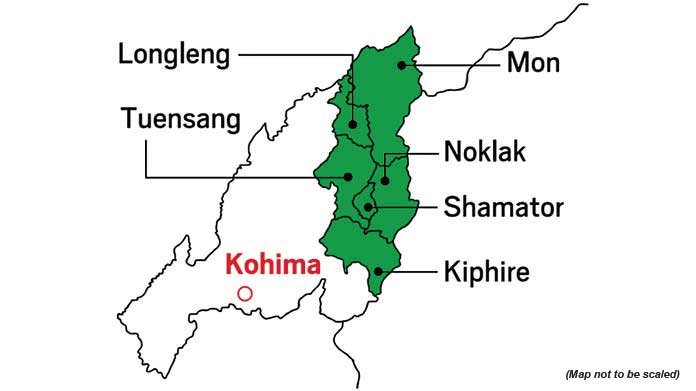By: Dipak Kurmi
The planet has recently been sending out distress signals that can no longer be ignored. The term “climate emergency” has evolved from being a mere catchphrase into an undeniable and urgent reality. We stand at a critical juncture in the global community, where the decisions we make today will shape the fate of future generations.
In the face of the undeniable climate emergency, a new and troubling adversary has surfaced: climate disinformation. With higher stakes than ever before, the role of climate scientists not only remains pivotal but also serves as a guiding light amidst the overwhelming tide of misinformation.
Collaborative action for a sustainable future
In light of the pressing climate crisis, the escalation of global temperatures presents a concerning issue. Previously rare heatwaves are now occurring with increased frequency and greater intensity. Simultaneously, the melting of glaciers is leading to rising sea levels, posing a threat to coastal communities. The sharp rise in the occurrence and severity of hurricanes, floods, and wildfires serves as poignant reminders of the urgency we must address.
A recent Twitter post from Collin McCarthy highlights the emergence of a notably powerful marine heatwave along the western coast of the United States. Ocean temperatures in this area have spiked significantly, deviating by nearly 5 degrees Celsius from the usual baseline. The National Oceanic and Atmospheric Administration (NOAA) has officially categorized this event as a Category 4 marine heatwave, underscoring its classification as an exceptionally severe occurrence within this schema.
The core of this crisis revolves around the undeniable consequences of human actions, particularly the burning of fossil fuels that release greenhouse gases into the atmosphere. This harmful process sets off the well-known greenhouse effect, exacerbating global warming. Adding to the challenge is deforestation, which eliminates the crucial carbon dioxide-absorbing role of forests. To address these threats, a fundamental transition toward sustainable energy sources and environmentally friendly practices is no longer optional; it is an absolute necessity.
Beyond the evident environmental consequences, the climate emergency presents an existential menace to biodiversity and ecosystems. Coral reefs, the dynamic underwater ecosystems that support marine life, carry the sorrowful marks of bleaching caused by increasing water temperatures. These repercussions reverberate across ecosystems as vulnerable species struggle to adapt to rapidly changing conditions, unsettling established food chains and disturbing the intricate balance of nature’s intricate web.
Amid these challenges, the importance of international cooperation becomes a pivotal factor in addressing the climate emergency. The historic Paris Agreement serves as evidence of global unity in the effort to combat the increasingly severe consequences of global warming. However, the effectiveness of these commitments depends on transforming words into concrete actions. Nations, industries, and individuals must unite to reduce emissions, accelerate efforts in renewable energy initiatives, and pioneer innovative solutions for a sustainable future.
While the call for systemic change is unmistakable, individual contributions are equally crucial. Whether it’s rejecting single-use plastics, adopting public transportation, or embracing energy-efficient behaviors, the combined effect of these choices is profound. These deliberate decisions resonate and push industries and policymakers to realign their priorities in support of environmental preservation.
As we grapple with the intricate challenge of the climate crisis, the call for action grows increasingly pressing. It resembles a compelling plea for people from all walks of life to collaborate in forging a collective narrative of resilience and renewal. The present moment holds exceptional significance, and charting a sustainable and enduring path forward hinges not only on influential individuals and large corporations but also on the choices made by each one of us. Our decisions can wield significant influence over the trajectory of our planet.
Climate disinformation
The evidence is abundantly clear: escalating temperatures, receding ice caps, and a surge in extreme weather events. Addressing the climate emergency necessitates collaborative efforts and well-informed choices. Yet, the fight against this crisis is hindered by the spread of misinformation aimed at casting doubt and impeding substantial progress. In this context, Prof. Nick Cowern asserts that “I believe publishing climate disinformation should be legally classified as a criminal offense.”
The proliferation of climate disinformation presents a disconcerting issue. Certain individuals and interest groups, motivated by their stake in preserving the current state of affairs, minimize the gravity of the crisis or outright reject its reality. Deceptive storylines and selectively chosen data have obscured clarity, leading to a state of bewilderment among both the general public and decision-makers.
Vital role of climate scientists
In the midst of the haze of disinformation, climate scientists emerge as beacons of clarity and truth. These committed researchers, equipped with data and profound expertise, assume a central role in enhancing our comprehension of the intricate dynamics of our evolving climate. Their meticulous research furnishes us with evidence-based perspectives that steer us toward well-informed choices and impactful solutions.
Peter Kalmus, a climate scientist, expresses the emotional challenges that come with his profession in today’s society. He laments, “It’s exceptionally challenging to be a climate scientist on an emotional level. We can foresee a terrifying future, yet we often find ourselves overlooked.” What adds to the concern is the unsettling revelation that climate change is progressing at a swifter pace than initially anticipated. Perhaps it should occupy headline news, but regrettably, it remains a topic that many are reluctant to engage with.
Climate scientists confront a formidable mission that extends beyond grappling with the scientific complexities of Earth’s climate system. They also confront the formidable challenge of combating disinformation. This dual role underscores their unwavering commitment to both the pursuit of knowledge and the obligation to convey their findings accurately to the public. The ability to translate intricate scientific discoveries into easily comprehensible language is a skill that climate scientists are progressively refining. Effective communication serves as a vital link between scientific insights and public comprehension. By actively participating in public discourse and sharing their expertise, scientists can effectively counter misinformation and empower individuals to make informed decisions.
A call to action
The climate emergency is not some distant looming threat—it’s a present reality with tangible impacts already affecting us. The window for taking effective action is rapidly closing, and the need for immediate action cannot be overstressed. It’s a clarion call to reinvent our relationship with the Earth, embracing sustainable practices that protect our environment and secure a viable future for all. Delay is not an option; tomorrow may be too late. In confronting the climate emergency, it’s imperative to distinguish fact from fiction. Climate scientists, motivated by a devotion to truth and a dedication to our planet’s well-being, illuminate the way forward. By valuing their expertise and collectively rejecting misinformation, we can take substantial steps toward a more sustainable future—one that we owe not only to ourselves but also to future generations and the delicate ecosystems we coexist with.
To protect our planet, we must unite in a determined effort to confront the climate emergency directly. At the core of this endeavor lies the imperative of restoring trust in science and the scientific method. A pivotal step in this direction is offering support and a receptive ear to climate scientists, whose research undergoes meticulous peer review. By doing so, we can dispel misinformation and navigate our way toward practical and effective solutions. (The writer can be reached at dipaknewslive@gmail.com)







